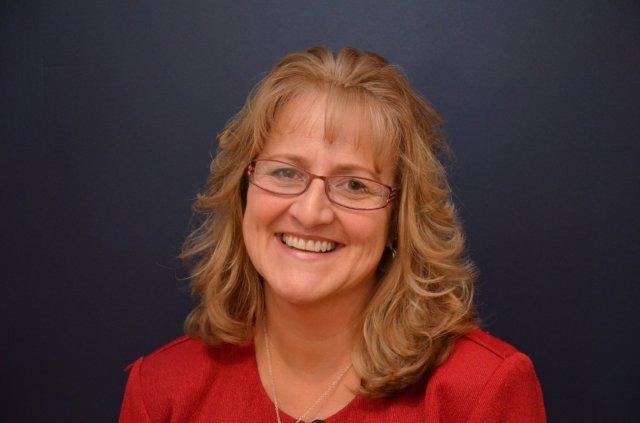

This article was produced in partnership with Amwins.
Gia Snape of Insurance Business America sat down with specialists at Amwins Program Underwriters (APU) to discuss risks in the hospitality industry.
From luxury guest ranches and country inns to digital detox destinations and boutique bed and breakfasts, the hotel and hospitality industry has evolved to cater to the growing demand for unique and offbeat travel experiences and activities.
But as lodging trends extend beyond traditional hotels, underwriters must look at risks as diverse as the venues themselves.
Non-traditional vacation lodgings require different underwriting considerations than standard hotel franchises, according to specialists at Amwins Program Underwriters.
“Travel continues to be up in a significant way, especially post-COVID,” said Daniel Curran (pictured below), senior vice president and underwriting officer at Amwins Program Underwriters.
“People are out spending and taking part in activities, so demand is there. We see in our submissions that exposures are up on the operational side. Clients are in a strong position financially, but they're also busy, which creates more risk.”

Challenging exposures coupled with a hard market marked by the difficulty in placing high-value properties and tightening capacity among carriers could spell insurance challenges for these businesses.
The experts at Amwins Program Underwriters recommend that retailers and their clients partner with carriers and underwriters who can understand their business operations and help them navigate risks associated with their unique offerings.
On the property side, exposures such as protection class ratings or construction type for destination establishments tend to be higher hazards than traditional hotels, which means they are not as favorable for carriers.
From a casualty perspective, hospitality businesses can present a wide variety of exposures, such as swimming pools, equine experiences, concerts, golf courses, skateboard parks, campgrounds, and sports facilities, to name a few.
“These activities require careful, focused underwriting and a close review of management experience and loss history, among other considerations,” said John Fitzgerald (pictured below), senior program underwriter for APU’s Destination Resorts & Hotels program.
“Underwriting more challenging exposures requires a high degree of expertise to understand and address the potentially hazardous exposures often intrinsic to these types of risks.”

Understanding those risks would involve conducting a thorough assessment of weather-related and other potentially catastrophic exposures and offering coverages, limits, and deductibles appropriate for the individual account.
“There's a pretty good appetite in the industry for your run-of-the-mill hotel franchise or bed and breakfast,” Curran said.
“But once you start getting a little bit different – from a property perspective, maybe more rural, such as a ranch or a ski resort – it becomes more challenging.”
A robust risk management strategy is critical for hospitality insureds in this market. Amwins Program Underwriters stressed the role of retail agents in communicating the best risk management practices to their clients.
Aside from maintaining properties to prevent slips and falls, securing waivers for activities emerged as a critical component of risk management for boutique hospitality businesses.
“Whenever possible, operators should get a signed liability release and waiver of the right to sue from the participants and ensure everyone understands the activity and that safety procedures are followed,” said Curran.
“Big corporations that are more hospitality risk management driven are more apt to use waivers, but the smaller mom-and-pop operations may not be aware of it and may not have an attorney on staff,” said Lynne Weeks (pictured below), assistant vice president, underwriting manager at Amwins Program Underwriters.
“It’s important for retailers to know that when they have a risk that they want to submit to us, we will expect the prospect to have a solid risk management program in place for all activities and that the retailers understand the insured’s risk management program.”

Amid predictions of casualty reinsurance increases in January 2024, analysts expect a further hardening of the casualty market in pricing and capacity.
“Reinsurance treaty issues for 2024 have also presented issues to numerous competitors, as their markets are restricting capacity, which is causing otherwise profitable business to be non-renewed and sent to the limited markets,” said Fitzgerald.
Specialization is key in a competitive market. Fitzgerald noted that with few programs available for this class of business, only a few carriers and underwriters can truly understand the nuances of destination lodgings and the risks in their operations.
“By specializing in this segment, Amwins Program Underwriters can assess, price and service this industry fairly and competitively in the context of the challenging exposures unique to destination hotels. This allows us to be a steady, reliable market regardless of business cycles,” Fitzgerald said.
“We also can offer coverage on both an admitted and non-admitted basis, allowing us to consider writing good business of varying levels of account complexity.”
Regarding submissions, the Amwins Program Underwriters experts recommend that retail brokers turn in full details with as much lead time as possible.
“[Retailers] can't just submit tough risks with two weeks’ lead time because if, for instance, the property is in a wildfire area, we're going to need a pre-inspection before we can even move forward,” said Weeks.
Fitzgerald agreed: “Marketing your business as much in advance as possible allows us the time to evaluate and price the business properly.”
While carriers are more discerning about property risks, Weeks said operators shouldn’t necessarily be disheartened.
“We are looking for better property risks, but that's not to say that we wouldn't look at an older property that has been well-maintained,” she told Insurance Business.
“If they've updated their heating, roof, or made other upgrades, we may look at that because we can see what they've been doing for maintenance.”
